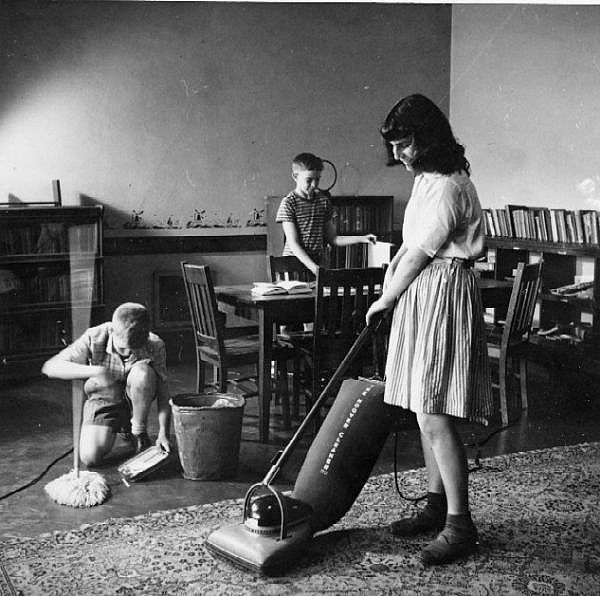The other night I was driving home with my husband from the
cottage owned by my extended family. It was late, and we had a lot of Sunday stuff still to take care of: laundry,
food to plan for the week ahead, etc. This was in addition to the two hours of tidying, wrapping up, putting
away, battening down and sprucing up we’d just done to leave the country house
in good condition behind us.
In the past, we might have been sullen and pissy; the ratio
of clean-up to relaxation time on Sundays always seems unfairly weighted on the
clean-up side. Maybe it was just the ultra-peaceful weekend we had this time,
but I suddenly looked over at my husband and I said, “I can’t believe I’m about
to say this, but I honestly don’t care how much work that was. I’m just really
glad we were able to take care of the house so nicely for the next guests.”
Even a few years ago this would have been like Swahili
coming out of my mouth. As a teen (and, I will shamefacedly admit, well into my
twenties), I hated the bother of being conscientious. Responsibility was – what
else? – a chore; one I took on as a necessity but never a point of pride. As a guest, I cleaned up after myself
so I wouldn’t get yelled at or asked not to come back, but only reluctantly.
Inwardly, I was always gribbly or
resentful.
I don’t know what changed – a factor of adulthood, perhaps,
but I just suddenly enjoyed feeling I
could be counted on to be a good guest, a reliable child, a responsible adult.
The pride I felt at knowing I was making things nice for others was plenty
sufficient to outweigh any momentary annoyance at spending so much of my Sunday
swabbing the decks. I’d worked with a good will and a good intention, and that
attitude made all the difference.
Subscribe to receive updates from Everyday Ethics or follow us on Twitter!
Photo credit: childrenshome.us

